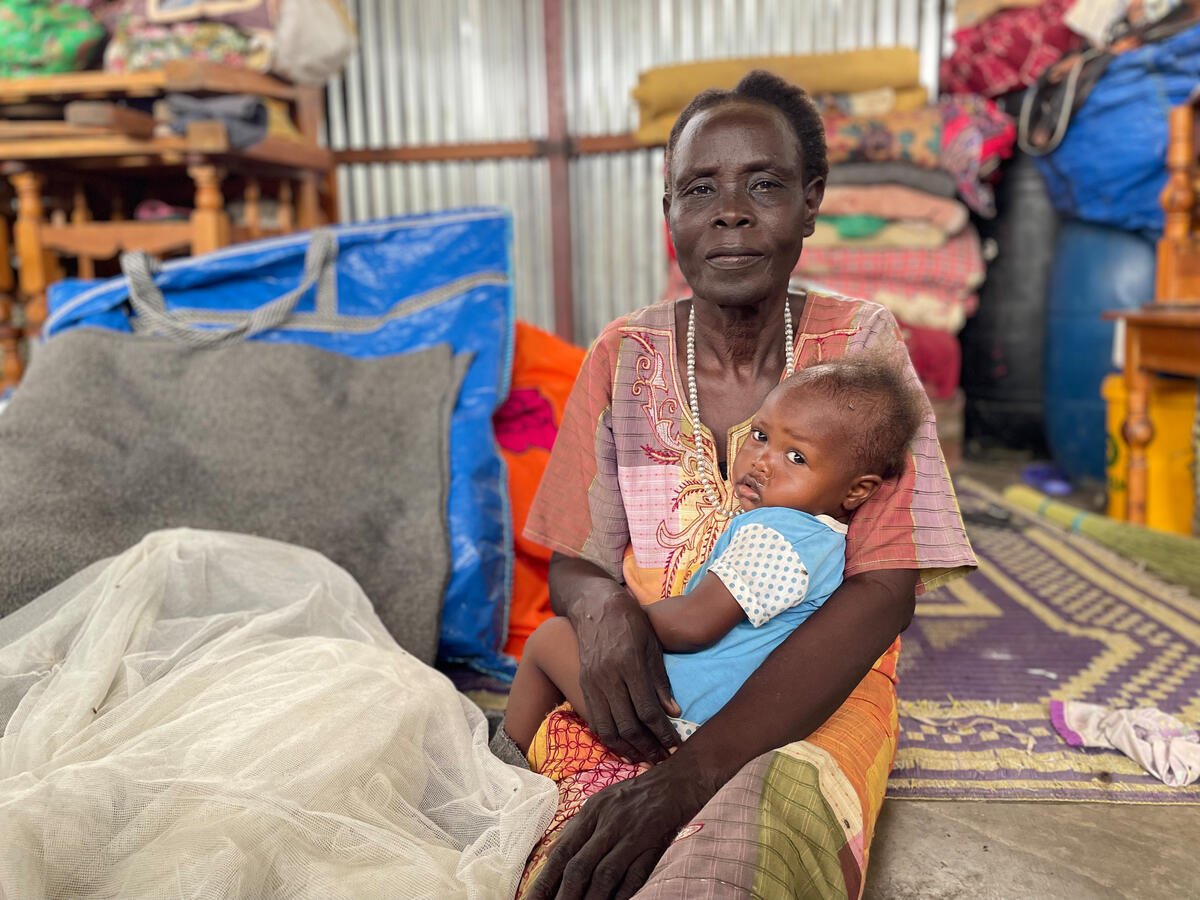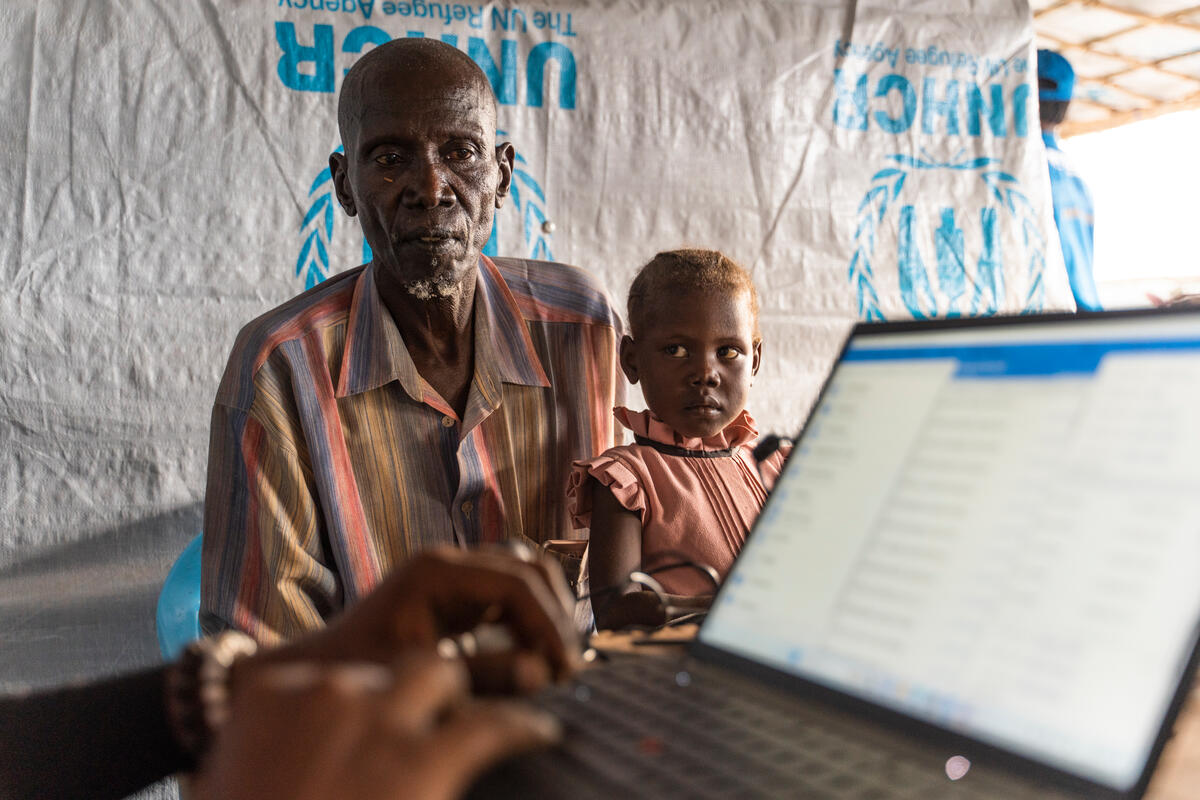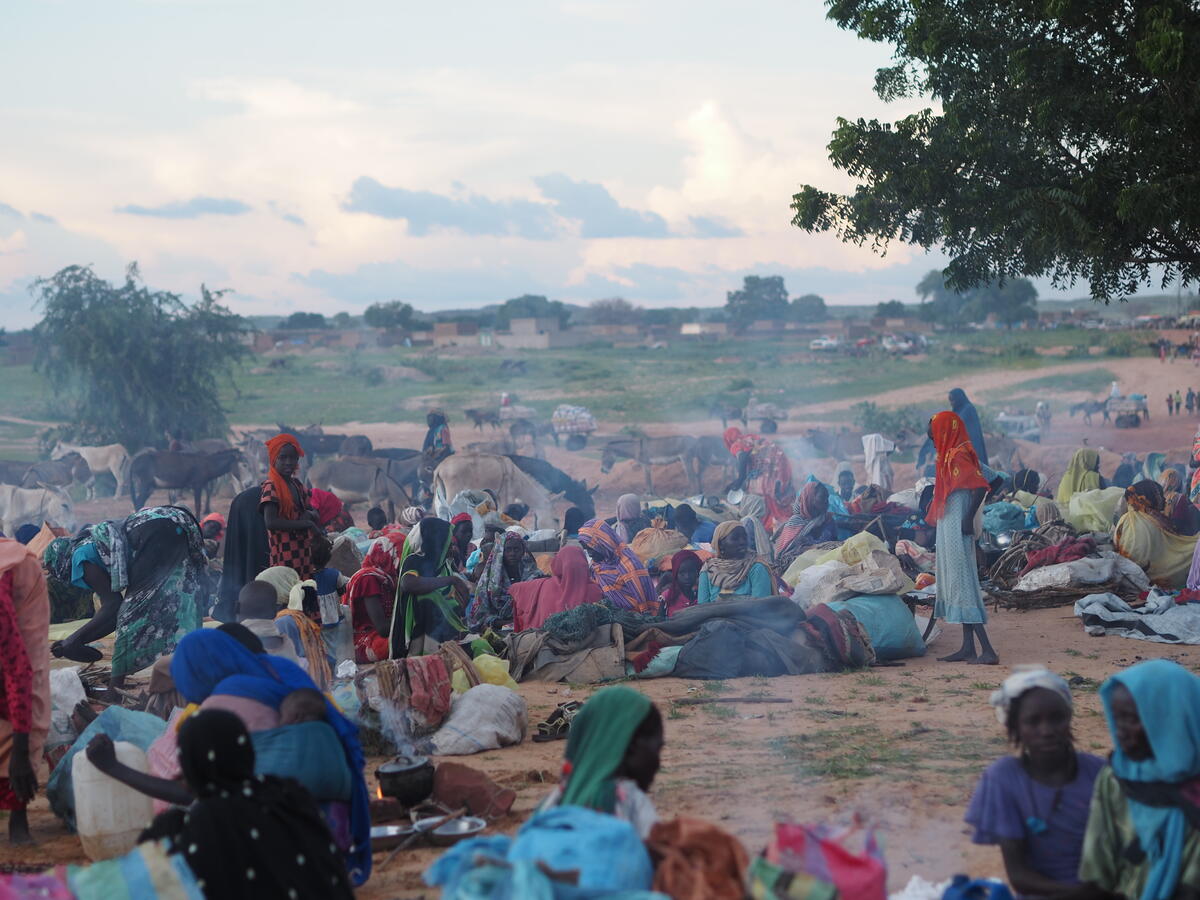UNHCR launches new learning platform to boost emergency preparedness and response in Africa
UNHCR launches new learning platform to boost emergency preparedness and response in Africa

(L-R) Hiroshi Ogihara, Chargés D’Affairs a.i.,for the Embassy of Japan in Kenya, H.E Ambassador Minata Samate Cessouma, African Union’s Commissioner for Health, Humanitarian Affairs and Social Development, Mamadou Dian Balde, UNHCR's Regional Director for East, Horn of Africa and Great Lakes region and Shoko Shimozawa, UNHCR’s Director for the Division of Emergency, Security and Supply at the launch of the eCentre for Africa for emergency preparedness and response in Nairobi, Kenya.
UNHCR, the UN Refugee Agency, has launched a new learning platform that seeks to strengthen the capacities of local humanitarian actors to prepare for and respond to humanitarian crises in Africa.
The platform, the eCentre for Africa, was launched during a three-day workshop held in Nairobi from 14-16 May 2024, bringing together government and national humanitarian organizations from 12 countries across the continent.
This is the second of its kind within UNHCR, following a similar initiative covering Asia and the Pacific region.
“UNHCR recognizes that protection, assistance and solutions during a humanitarian crisis is best achieved in partnership with local actors. The eCentre for Africa is a great way of building up existing local capacities that are extremely invaluable during emergencies, so that efforts to provide lifesaving assistance can be made more effective,” said Shoko Shimozawa, UNHCR’s Director for the Division of Emergency, Security and Supply.
The eCentre for Africa has been funded by the Government of Japan in line with its announcement made by the Foreign Minister at the 2023 Global Refugee Forum.
“It is challenging for humanitarian workers to provide dedicated support to the growing number of vulnerable people. Therefore, the eCenter for Africa will provide them with relevant training that will enhance their work and contribute to a more peaceful and stable environment, a key priority for the Government of Japan,” said Mr. Hiroshi Ogihara, Chargés D’Affairs a.i.,for the Embassy of Japan in Kenya.
When emergencies happen, governments, local organizations and communities themselves are often the first responders, doing all they can to assist the forcibly displaced. The eCentre for Africa will provide tailored and targeted learning opportunities, building on partners’ knowledge and skills and further boost response efforts. In addition, the eCentre for Africa will facilitate collaboration among the local actors, enabling them to gain from shared experiences and develop best practices for future responses.
“The African Union welcomes this great initiative, particularly as it aligns with the Union’s humanitarian agenda,” said H.E Ambassador Minata Samate Cessouma, the African Union’s (AU) Commissioner for Health, Humanitarian Affairs and Social Development. “As the continent continues to host a disproportionate number of forcibly displaced people, the eCentre will enable the AU to coordinate humanitarian response efforts with our Member States as well as the existing global humanitarian system,” said Cessouma.
In 2024, the eCentre for Africa plans to support two cohorts (English-speaking cohort and French-speaking) of local authorities and non-governmental organizations through four capacity-building workshops and on-line follow-up sessions focusing on three main themes, namely Leadership in Emergencies, Humanitarian Negotiations and Emergency Preparedness and Response.
In the last three years, UNHCR has been involved in nearly 150 emergencies globally, more than half of which were in Africa. UNHCR is working with governments and partners to provide critical aid and protection services in ongoing humanitarian crises in the continent, including in Sudan, Mozambique, and Burkina Faso, where renewed conflict has displaced millions of people as well as in Kenya and Somalia where thousands of refugees continue to be affected by severe flooding.
As of 30 April 2024, more than 42 million people are forcibly displaced across Africa.
ENDS
For more information, contact:
In Nairobi, Faith Kasina, [email protected], +254 113 427 094
In Geneva, Yutaka Tatewaki, [email protected], +41 79 607 9618








